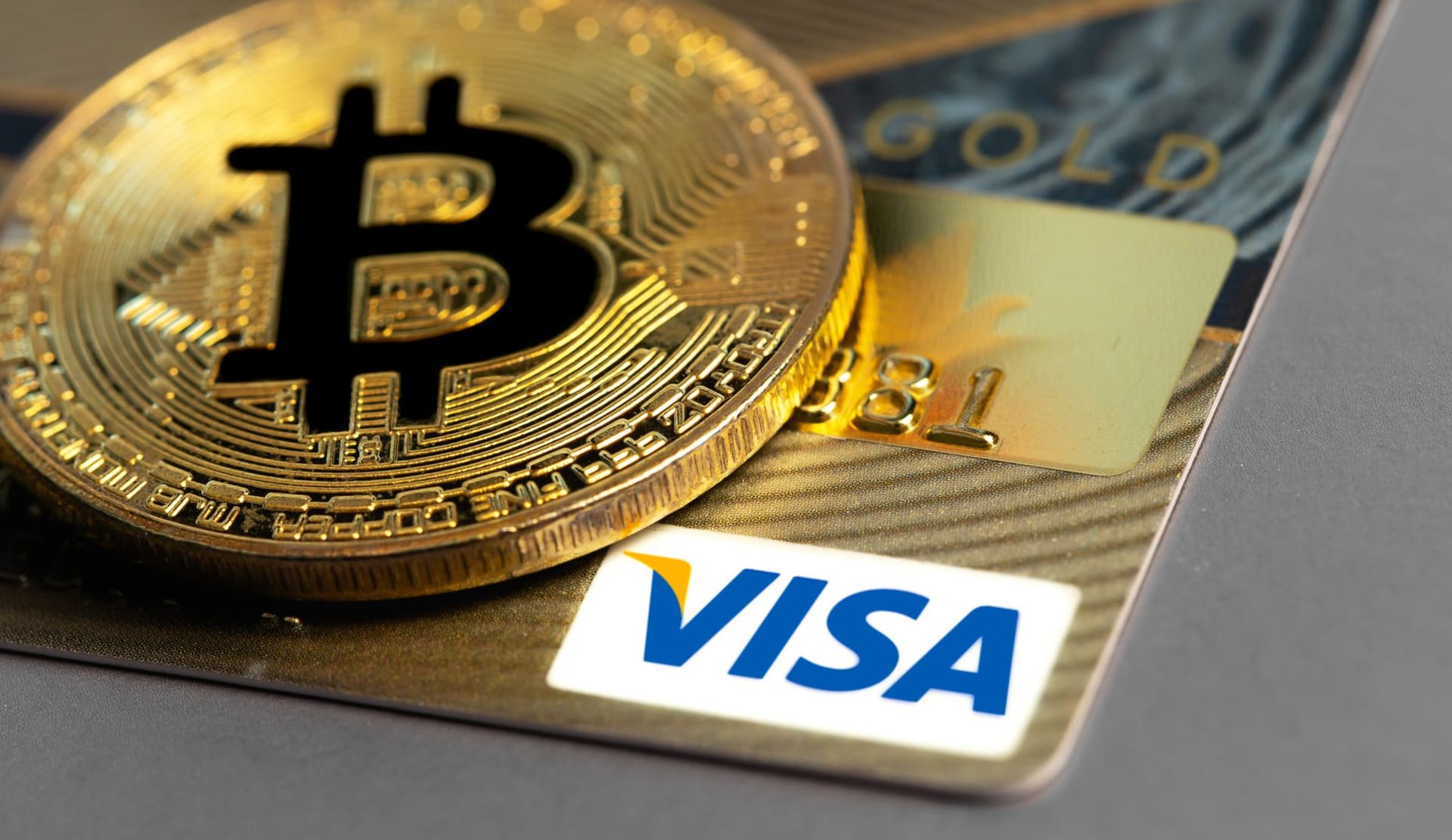Visa Partners with 50 Crypto Platforms on Card Programs
There was over $1 billion worth of digital currency spent via the company’s crypto-linked cards in the first half of 2021, Visa reported

key takeaways
- While consumers’ interest in owning crypto assets is growing, the number of merchants directly accepting payments on blockchains remains small
- Partnerships come as regulators are cracking down on exchange and fiat on-ramps, due to anti-money laundering and other concerns
Consumers spent more than $1 billion worth of cryptocurrency on goods and services through Visa’s crypto-linked cards in the first half of 2021, Visa recently reported. The company is partnering with 50 crypto platforms on card programs that allow users to convert and spend digital currency at 70 million merchants.
The value of crypto assets held in regulated digital wallets has reached hundreds of billions, and a Visa card is one of the simplest ways to spend crypto, the company said in a recent blog post.
Cuy Sheffield, Visa’s head of crypto, said that the large majority of the company’s crypto platform partners are coming through Visa’s Fintech Fast Track Program, which provides access to a network of enablement partners and startup incentives to launch and expand card programs. A quarter of the companies in Visa’s North America Fast Track program are currently working to issue crypto-linked cards, he added.
In March, Visa announced the use of USDC, a stablecoin backed by the US dollar, to settle a transaction with Visa over the ethereum blockchain.
“We’re seeing wallets and crypto native neo-banks building payment products entirely with digital currency, and we want to meet these companies where they are,” Sheffield told Blockworks. “The ability to make settlement payments to Visa in digital currencies could offer meaningful benefits and efficiencies, particularly for fintechs who run their business in crypto.”
In May, research published by Visa’s competitor, Mastercard, found that 93% of people across 18 global markets said they would consider using at least one emerging payment method – such as cryptocurrency, biometrics, contactless or QR code – in the next year. According to the survey, 71% of people said they expect to use cashless payments moving forward.
Overall, 40% of people surveyed said they plan to use cryptocurrency in the next year, the report added, with two-thirds of millennials agreeing they are more open to using cryptocurrency than they were a year ago.
Earlier this year, Gemini announced that it had made Mastercard the exclusive card network of its crypto rewards card, with which cardholders earn 3% back in the cryptocurrency of their choice. BlockFi unveiled its Visa rewards credit card for a handful of its US-based clients this week.
An evolving era
While consumers’ interest in owning crypto assets is rising, the number of merchants willing to directly accept payments on blockchains remains small, Sheffield noted. Having a Visa card linked to your crypto balance adds the ability to fund purchases and manage expenses instantly, he argued.
Visa’s efforts come as regulators are cracking down on exchange and fiat on-ramps due to anti-money laundering and know-your-customer concerns. Barclays recently stopped its customers in the United Kingdom from transferring funds to Binance after the Financial Conduct Authority warned that subsidiary Binance Markets Limited was not permitted to undertake any regulated activity in the country.
“Visa also acts on behalf of the card issuers and those issuers may have their own independent risk parameters,” Michael Del Grosso, a research analyst at Compass Point Research & Trading, told Blockworks. “Barclays took independent action against Binance, but you could easily see either more issuers make a similar move or the card networks move in on it as well.”
Infrastructure to support the retail and broader banking effort is still being put in place, Del Grosso added.
Separately, the National Cash Register and digital asset management firm NYDIG partnered last week to allow 650 US-based banks and credit unions to offer crypto trading services and bitcoin purchases, Blockworks previously reported. That followed an announcement by NYDIG and Fiserv that they would team up to help consumers get bitcoin into their bank accounts without going through an external exchange.
Though all US retail banks are subject to stringent regulations, Del Grosso explained, integrations can lead to differentiation, such as USAA’s integration with Coinbase to allow members to view their Coinbase wallet balances.
“Longer-term I think the companies that have the largest head-start on the retail side are the emerging fintechs and crypto companies offering interest on USDC and other fiat-backed stablecoins,” Del Grosso said. “[Or] crypto-backed reward credit cards, which could eventually be a threat to larger banks.”





